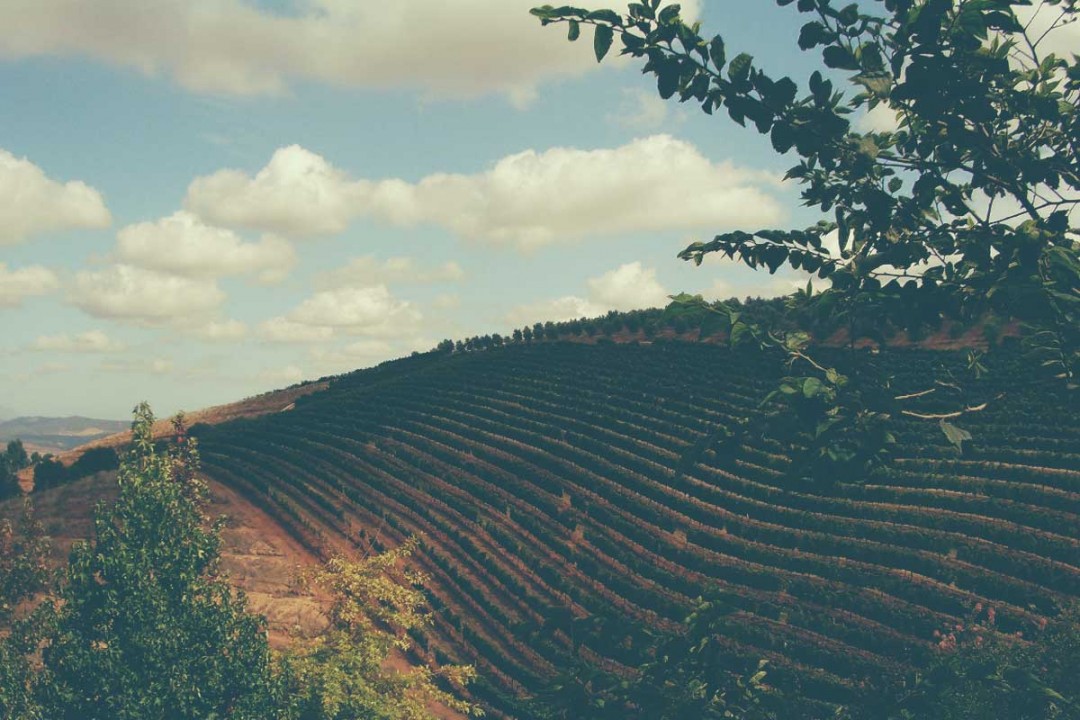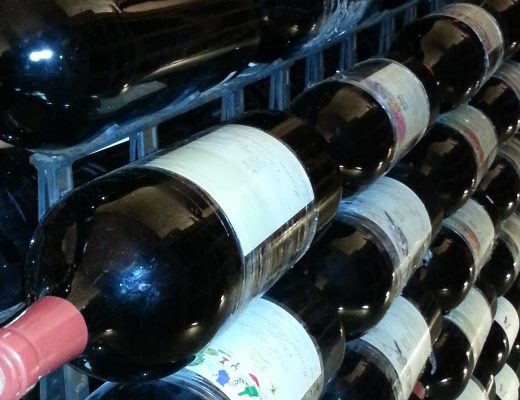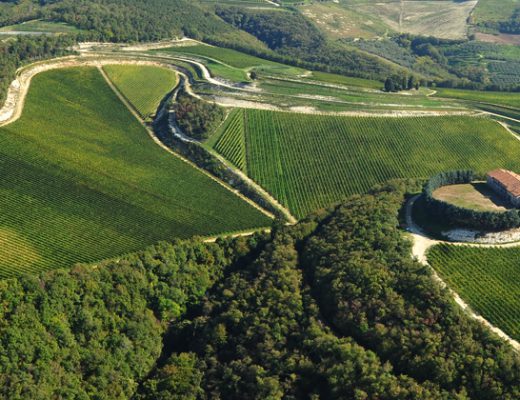This week’s wine flight centres around Cabernet Sauvignon based wines. Originally from the South West of France with mentions as far back as the sixteen hundreds, Cabernet Sauvignon is a cross between the white grape Sauvignon Blanc and the red Cabernet Franc. Today, it is the most planted wine grape in the world.
What makes Cabernet Sauvignon so popular to grow? It is hardy, fairly disease and frost resistant and adapts well to a huge variety of climates and soil types. Cabernet Sauvignon has a fantastic aromatic and structural range; from green, herbaceous notes with vibrant acidity and a taut frame in cooler climates to intense black currant and dark berry fruits with more moderate acidity and broader structure in warmer areas. Top Cabernet Sauvignon has high acidity, full body and firm tannins allowing for excellent ageing potential, and with that, the potential for further aromatic development, the mellowing of texture and softening of tannins.
I fell in love with Bordeaux in 2004. It was the eve of my departure for Burgundy to study in Beaune. My father, an unabashed French wine fanatic, decided to send me off in style. Knowing that I would get more than my fill of incredible Burgundies in the months to come, he decided to open a great Bordeaux, from a top vintage; namely a Château Léoville Las Cases 1982 from St. Julien. It was elegant and refined with so many layers of flavour, such a soft, silky mouthfeel and fine grained, rounded tannins. It just went on and on. Incredible…unforgettable. Sigh…
Unfortunately not all Cabernet blends from Bordeaux are that earth shattering. There are poor vintages, mediocre quality growers, lots of mass-produced wines at the cheaper end of the spectrum, not to mention the waiting game…the better Bordeaux need time to soften and develop. They are often quite green, austere and pucker-inducing in their youth. Aromas range from green pepper, graphite, violets and black currant at first, to tobacco, cedar, leather and earthy notes with age.
Stellenbosch in the Western Cape’s Coastal Region of South Africa has also developed a name for itself for good quality (and value) Cabernet. Despite a fairly hot, dry climate, Stellenbosch Cabernet Sauvignon is distinctive for its herbaceous, eucalyptus aromas, restrained black currant and signature singed/ smoky notes. Dry and medium bodied like Bordeaux with similar use of French oak, but more moderate acidity and slightly higher alcohol levels.
The Coonawarra is a comparatively tiny vineyard area (just 15km x 2km) within the Limestone Coast area of South Australia. This out of the way pocket of vines is sought after due to the Terra Rossa (red soil) that has proved an incredible terroir for Cabernet Sauvignon. The wines are intensely fruity with black currant and plum notes; and lots of spicy mint undertones. Moderate to fresh acidity, full body, velvetty structure and firm, chewy tannins. Depending on the grower, oak is either restrained, spicy French or more overt, vanilla and coconut scented American.
The Mendoza region of Argentina provides Cabernet Sauvignon a cocktail of high altitude, ample sun and rocky soils. The resulting wines are fresh, with an intriguing combination of power and elegance. Aromas include black currant, black cherry and plum, underpinned with sweet spices and vanilla. Acidity, body and tannin are all high here, though tend to be balanced and smooth in the best examples, with well integrated American and/ or French oak.
Last but certainly not least, the Napa Valley. In a famous 1976 tasting in Paris, Cabernet Sauvignon from the famous Stag’s Leap beat out Bordeaux 1st growths in a blind tasting. Napa growers are, understandably, proud of their terroir. Cabernet Sauvignon grown here is powerful and lush. Ripe black and red fruits, soft menthol, eucalyptus notes and oak aromas dominate. The best examples generally have moderate acidity, full body, broad structure, firm, silky tannins and lots of toasty, vanilla oak on the finish.
For the purposes of this initial overview tasting, I chose classic examples from the following producers (What do VW, PW & LW mean? Click on my scoring system for the answer):
Château Citran AOC Haut Médoc 2010 – 90pts. LW
Bordeaux blend of equal parts Cabernet Sauvignon and Merlot, with ~5% Cabernet Franc. Restrained and earthy on the nose with notes of black currant, menthol, cedar and tobacco leaf. Bright, juicy acidity, medium body, firm, rounded tannins, moderate alcohol and subtle oak. Needs time or, barring that, a couple of hours in a decanter to unwind.
Where to Buy: Not currently available in Ontario or Québec
Les Fiefs de Lagrange AOC St. Julien 2010 – 92pts. LW
The second wine of renowned St. Julien property Château Lagrange. The blend is 60% Cabernet Sauvignon, 30% Merlot & 10% Petit Verdot. More elegant and intense with layered aromas of sweet cherry, cassis, violet, earthy notes, tobacco and eucalyptus. Full bodied with a silky texture, vibrant acidity, very firm, fine grained tannins and well integrated oak.
Where to Buy: Not currently available in Ontario or Québec
Le Bonheur Stellenbosch Cabernet Sauvignon 2011 – 86pts. PW
This prominent Stellenbosch estate on the Simonsberg Mountain was established in the 18 hundreds. The wine shows a marked green character with eucalyptus, menthol and bell pepper notes dominating the soft black fruit undertones. Full bodied with moderate acidity and grippy tannins. The juicy fruit character on the palate seems at odds with the green nose.
Where to Buy: SAQ (23.50$)
Jim Barry “The Cover Drive” Coonawarra Cabernet Sauvignon 2012 – 90pts. PW
Seductive notes of cassis, plum and dark cherry, with underlying minty and dark chocolate aromas. Good balance of fresh acidity and full-bodied, fruity structure. Lots of vanilla-rich oak aromas here. Tannins are pronounced, but ripe. Very pleasant, but no aromatic development in glass.
Where to Buy: LCBO (26.95$), SAQ (27.55$)
Catena Mendoza Cabernet Sauvignon 2012 – 93pts. PW
Leading Argentinian producer Catena is hailed as a pioneer of top quality, high altitude wines in the Mendoza region. Pretty nose of ripe blackberries, tea leaf, dark chocolate, menthol and subtle cedar notes. The palate is fresh and lively; full bodied with a smooth texture, soft tannins and present, but well integrated oak. Easy drinking; great value for the price.
Where to Buy: LCBO (19.95$), SAQ (22.30$)
Robert Mondavi Napa Valley Cabernet Sauvignon 2012 – 89pts. PW
Robert Mondavi was known world-wide for his tireless efforts to gain global recognition for the high quality of Napa Valley wines. The winery has since been sold, but the wines are still well-made. This Cab shows attractive menthol, cassis, raspberry, sweet spice and intense vanilla notes on the nose. Bright, juicy acidity is backed by a full body and firm tannic structure. It is tightly wound; needs time for the oak to integrate and the tannins to soften.
Where to Buy: LCBO (34.95$), SAQ (34.75$)





No Comments